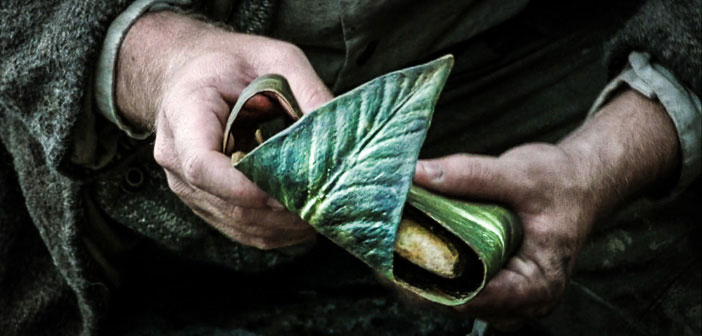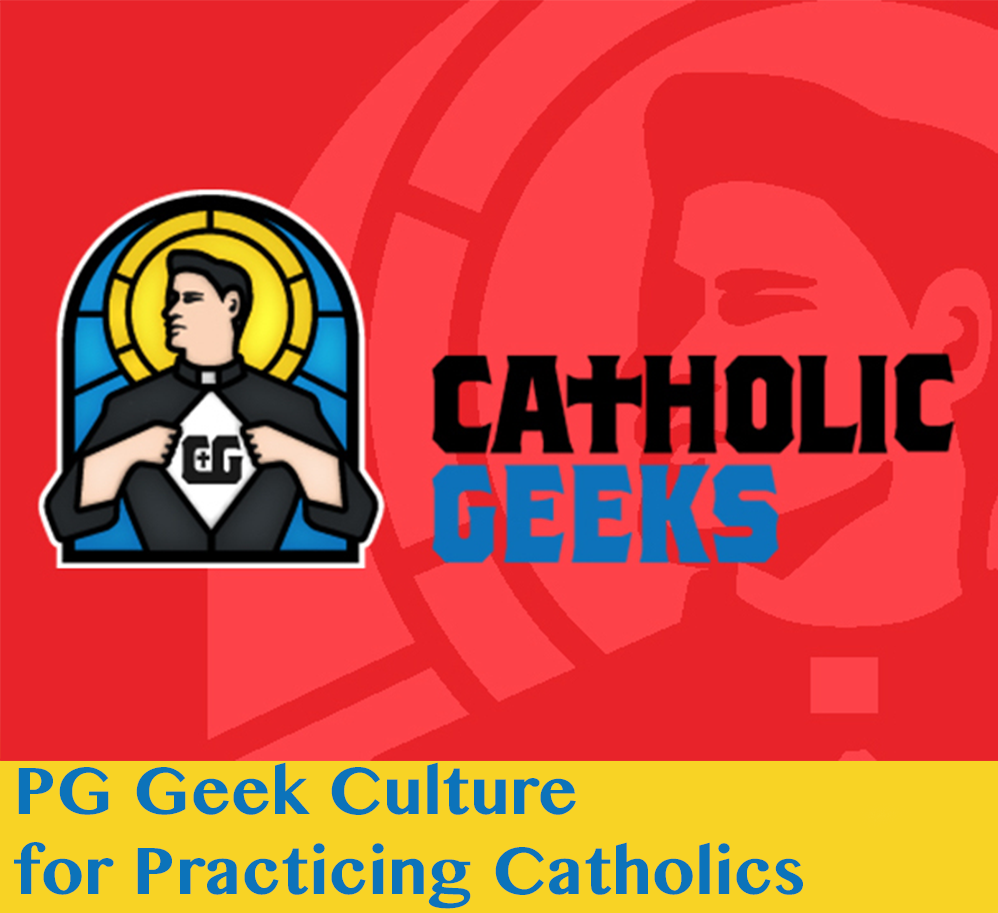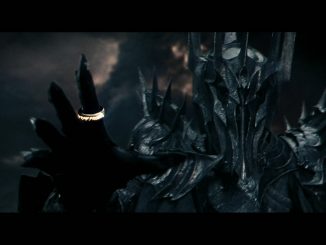
Click Here For This Week’s Readings.
Screenwriting coaches recommend breaking a story into “beats” — moments within the narrative arc which mark the rising and falling of dramatic tension. At the end of the second act, just before the final push toward resolution, comes the “All is Lost” moment, followed by what they call the “Dark Night of the Soul.” This is the point in the story when the hero is at his lowest and most desperate, when his goals seem completely unattainable.
This is where we find Elijah in our first reading. A day’s journey into the desert, with forty days and nights still to go, he is despairing and praying for death. When he does overcome this malaise and press on, it is not because of some flash of insight or moment of inspiration (as the screenwriting gurus would recommend). He gets something to eat, and he gets on with it.
I’m willing to bet I’m not the only one to read that and think immediately of The Lord of the Rings.
Frodo’s Dark Night of the Soul, too, is not something that he overcomes so much as pushes through to the end. And like Elijah, he is given food to sustain him. (Side note, apropos of nothing; I only just now realized that I’m making a comparison between the prophet Elijah, and a character played by the actor Elijah. Okay, back to the reflection in progress.)
In the desolation of Mordor, there is no food except what the hobbits carry with them; the lembas, the elvish waybread given them in Lothlorien. These “very thin cakes,” as Tolkien describes them, resemble both Elijah’s hearth cakes and the Eucharistic bread that Jesus speaks of in the Gospel. The first gives sustenance for the physical journey; the second gives spiritual nourishment.
Because it isn’t a journey to be made alone. Elijah has an angel, urging him to eat and keep his strength up. Frodo has Samwise, to carry him when his strength fails. And Jesus gives us Himself as the living bread that comes down from Heaven. More than mere spiritual nourishment, the Eucharist is a deep and intimate relationship with Christ himself.
The Dark Night of the Soul, in the poem by Saint John of the Cross, refers to a time of spiritual desolation — like Elijah’s despair under the broom tree or Frodo’s trek through Mordor — a time when life itself seems more burden than blessing. The one thing that keeps him going, that “guided me more surely than the light of noon,” is that unity with Christ. That which is the final destination of our journey is the same thing that sustains us to the end.



